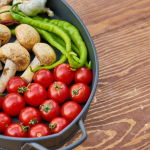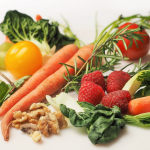The 2021 annual conference of U.S. Mayors adopted a resolution to create community “Blue Zones,” as part of the Well-Being Initiative to Combat Disease and Comorbidities. The Blue Zones program is derived from the work of Dan Buettner, a National Geographic Fellow, who identifies regions around the world where people purportedly live extraordinarily long and happy lives.
Food & Nutrition
Ah, the influencer. It’s a new job category for someone who can move markets – at least for goods – by sharing their love of them. This used to be solely the domain of celebrities, but social media has significantly changed that. So when it comes to subjects related to nutrition, the question is: are they using their influence to help or hurt?
Way too many people have experienced the discomfort of food-borne illness: nausea, vomiting, diarrhea, abdominal cramps, and fever. These illnesses are usually mild, but occasionally they can lead to hospitalization, even death. It may surprise you to know that fresh fruits or vegetables can be the source of these illnesses.
Popular Science has joined the ranks of mainstream outlets that shill pesticide propaganda. Last week, the magazine published a story about glyphosate so atrocious that it could have been written by an activist at the Environmental Working Group.
The USDA's "bioengineered" (GMO) food label is expensive and pointless, facts widely disseminated by the science community. The media has been critical of the new labeling regulations as well, though for the wrong reasons. Here's a textbook example from NBC News.
The 2010 Patient Protection and Affordable Care Act (ACA) required large food chains to post the calories along with the prices for their food. According to the Center for Science in the Public Interest [1], this costs food chains roughly $45,000 each to create that information; producing the changes in menus is an additional cost. A new study shows what we got, calorie-wise, for all that fuss and bother.
It's time for another installment of the "Health Ranger Chronicles," where we critically examine the strange ideas promoted by Mike Adams' wildly popular website Natural News. This time we investigate a story about Monster Energy's "Satanic" plot to poison our children with sugar and caffeine.
Are GM crops a tool of "neocolonialism"? The answer is "no." I joined Dr. Kevin Folta on episode 325 of the Talking Biotech Podcast to explain why.
Scientific American's descent from respected publication to ideological tabloid is nearly complete. The magazine is now promoting anti-GMO activism under the guise of "social justice."
A recent Newsweek report on the toxicity of ultra-processed foods was based on a carefully performed study comparing the responses of 20 individuals to both unprocessed and ultra-processed foods. It is worthwhile, as citizen-scientists, to look at the study for ourselves. We cannot argue the dots but may disagree with how they connect.
Some social justice activists have alleged that Western companies use biotechnology to "colonize" the developing world. There isn't a bit of evidence in support of this popular but very dangerous accusation.
Fruitcake aficionados, look away. It's holiday time and some of you will receive a re-gifted fruitcake that is ??? years old. How old? We'll show you how to figure it out in this Christmas Special Chemistry Lesson From Hell. We will also explore whether the fruitcake is the worst gift ever. And more!











